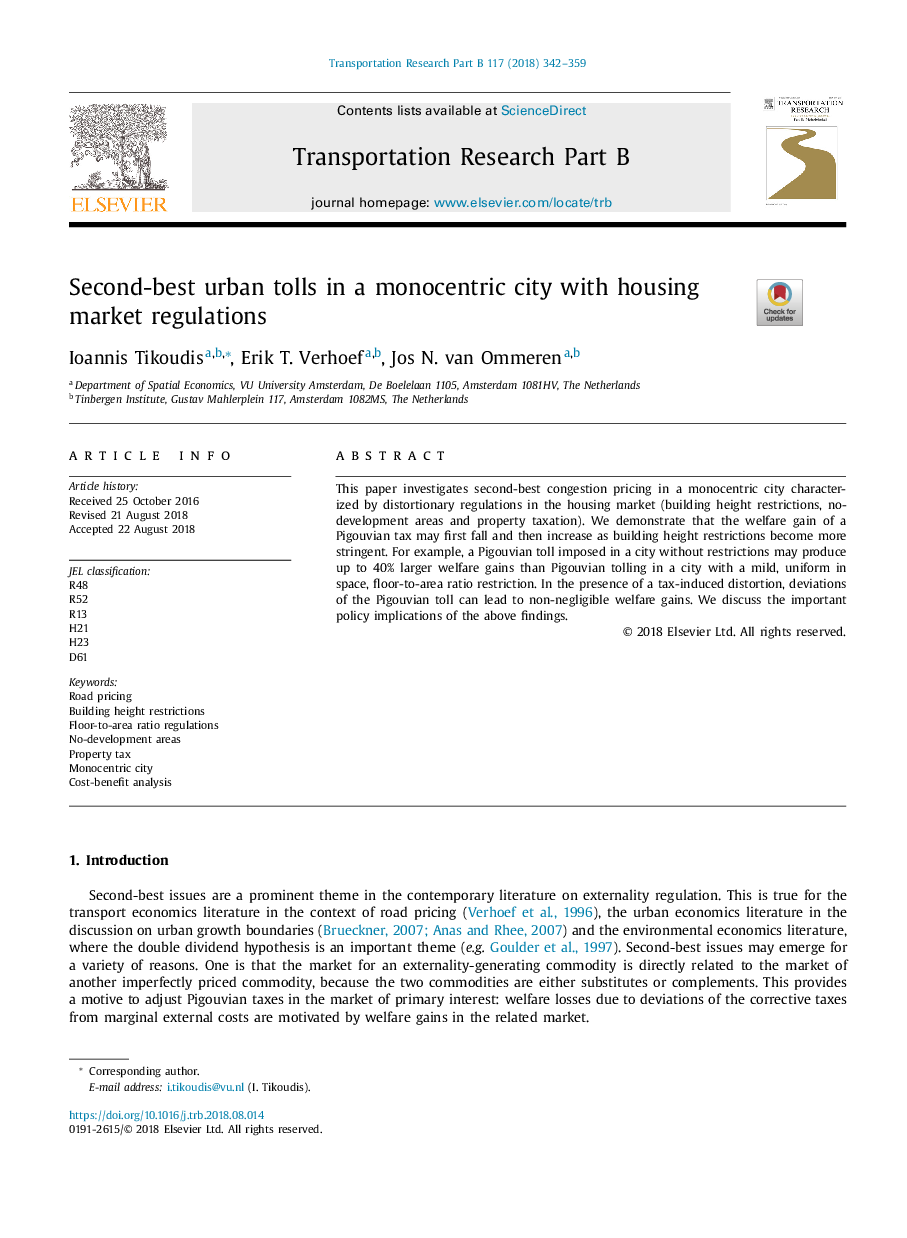| Article ID | Journal | Published Year | Pages | File Type |
|---|---|---|---|---|
| 10140716 | Transportation Research Part B: Methodological | 2018 | 18 Pages |
Abstract
This paper investigates second-best congestion pricing in a monocentric city characterized by distortionary regulations in the housing market (building height restrictions, no-development areas and property taxation). We demonstrate that the welfare gain of a Pigouvian tax may first fall and then increase as building height restrictions become more stringent. For example, a Pigouvian toll imposed in a city without restrictions may produce up to 40% larger welfare gains than Pigouvian tolling in a city with a mild, uniform in space, floor-to-area ratio restriction. In the presence of a tax-induced distortion, deviations of the Pigouvian toll can lead to non-negligible welfare gains. We discuss the important policy implications of the above findings.
Related Topics
Social Sciences and Humanities
Decision Sciences
Management Science and Operations Research
Authors
Ioannis Tikoudis, Erik T. Verhoef, Jos N. van Ommeren,
